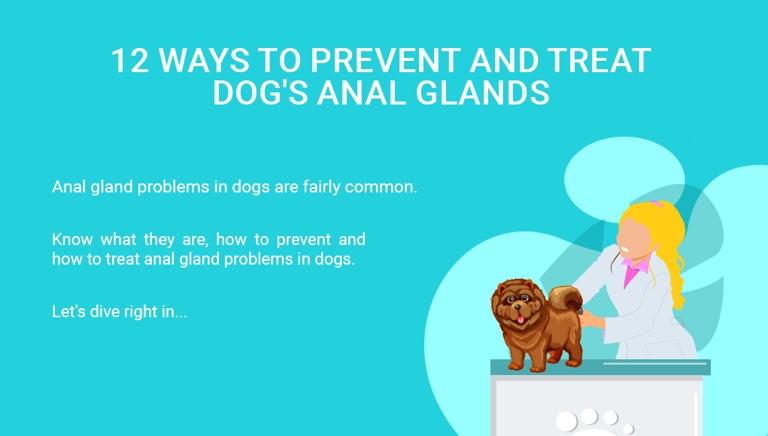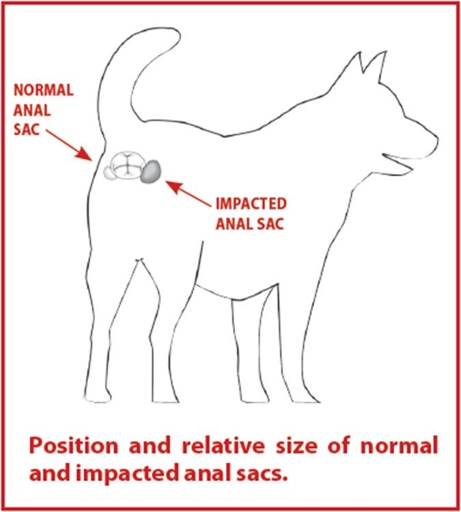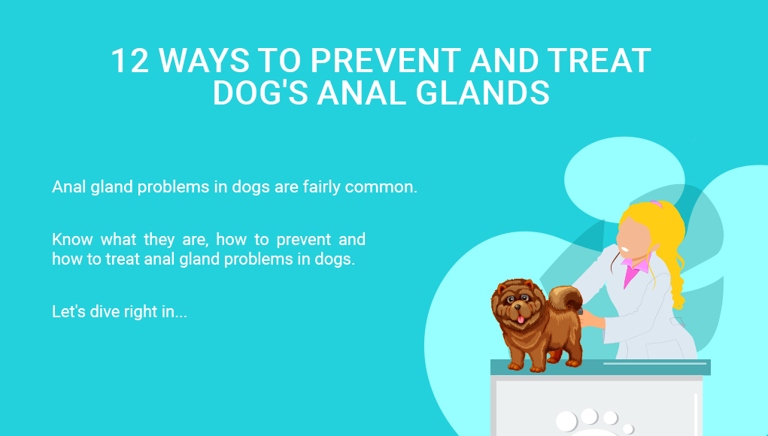Dogs have two anal glands that are located just under the skin on either side of the anus. These glands are used to mark their territory and communicate with other dogs. When a dog is feeling stressed or threatened, they may express their glands as a way to feel more secure. If your dog is expressing its glands on the couch, it is likely because it feels comfortable and safe in that space.
What Are Anal Glands For?
When a dog defecates, the act of passing stool squeezes the glands and forces the liquid out. Each sac contains a small amount of foul-smelling liquid. Anal glands are two small sacs, located just inside your dog’s anus. They are also called anal sacs, scent glands or simply, glands. This liquid is used to mark territory and identify other dogs.
Indicators of Gland Issues
Additionally, if your dog is leaving small, oily spots on your furniture or clothing, this is another potential sign of a gland issue. For example, if your dog is constantly licking or chewing at a particular spot on their body, it may be an indication that their glands are not functioning properly. There are a few different indicators that may suggest your dog has a gland issue. If you notice any of these indicators, it’s important to take your dog to the vet for a check-up to ensure that there isn’t a more serious underlying problem.
Avoiding Gland Issues
The glands in a dog’s body are responsible for producing various substances that are important for their health. However, when these glands become blocked or overactive, they can cause problems for the dog. If your dog is expressing its glands on the couch, there are a few things you can do to avoid gland issues.
Ways to Drain Glands
It could be that the glands are full and need to be drained, or your dog may be experiencing some anxiety or stress. There are a number of reasons why your dog may be expressing its glands on the couch. In any case, there are a few ways to help your dog drain its glands.
Dog Groomer
Another reason may be that your dog is marking its territory. One reason may be that the glands are full and need to be drained. There are a few reasons why your dog may be expressing its glands on the couch. If you are unsure of why your dog is expressing its glands, it is best to consult with a veterinarian. If your dog is marking its territory, it is important to have the area cleaned up as soon as possible to prevent further marking.
Veterinarian
Another reason may be that your dog is marking its territory. One reason may be that the glands are full and need to be drained. There are a few reasons why your dog may be expressing its glands on the couch. The veterinarian will make a small incision in the gland and express the contents. If your dog is marking its territory, it is important to have the area cleaned up as soon as possible to prevent other dogs from coming into the area and urinating. If you think that your dog’s glands are full, you can take your dog to the veterinarian to have them drained.
Do It at Home Yourself
Other reasons may include anxiety, excitement, or fear. There are a few reasons why your dog may be expressing its glands on the couch. The most common reason is that the glands are full and need to be emptied.

If your dog is anxious or excited, try to calm them down before expressing the glands. If your dog is afraid, it may be best to have someone else do it. Be sure to wash your hands afterwards. This can be done by gently squeezing the glands until the contents are expressed. If the glands are full, the best way to empty them is to do it at home yourself.
Surgical Removal
The anal glands are located on either side of the anus and are used to produce a foul-smelling liquid that helps your dog mark its territory. If the glands become full, they can become uncomfortable and may need to be expressed manually. There are a few reasons why your dog may be expressing its glands on the couch, but the most likely reason is that the glands are full and need to be drained.

If you suspect that your dog’s glands are full, you can try expressing them yourself at home. First, put on a pair of latex gloves to protect your hands. If you are having trouble expressing the glands, you can take your dog to the vet to have them expressed professionally. Then, gently insert your finger into your dog’s anus and feel for the small, pea-sized glands. Once you’ve located the glands, apply gentle pressure to them until you feel a small amount of the foul-smelling liquid express.
This is a relatively simple and straightforward procedure that can be done under anesthesia. After the glands are removed, your dog will no longer be able to produce the foul-smelling liquid and will no longer need to have its glands expressed. If your dog’s glands are frequently full and need to be expressed frequently, your vet may recommend surgically removing the glands.
Underlying Causes of Anal Gland Problems
There are a few underlying causes of anal gland problems in dogs. Other causes include allergies, anal sac impaction, and anal sac disease. The most common is when the anal glands do not empty properly. This can be due to a blockage, infection, or tumor.
Infection
There are a number of underlying causes of anal gland problems in dogs, but one of the most common is infection.

The anal glands are located on either side of the anus and are responsible for producing a foul-smelling liquid that is used to mark territory. If these glands become infected, they can become swollen and painful, and may even burst.
Infection is usually the result of bacteria entering the glands, either through the anus or a break in the skin. This can happen if your dog has diarrhea or if it scratches or licks its anus excessively.
If your dog is showing signs of anal gland problems, it is important to take it to the vet for treatment. Infections will usually require antibiotics to clear, and your vet may also recommend expressing the glands manually to relieve pressure and pain.
Obesity
This can lead to anal gland problems such as anal sacculitis (inflammation of the anal glands) and anal sacculitis with abscess (an infection of the anal glands). There are many potential underlying causes of anal gland problems in dogs, but obesity is one of the most common. When a dog is overweight, the extra weight can put pressure on the anal glands, which can cause them to become irritated and inflamed. If your dog is overweight, talk to your veterinarian about a weight loss plan that is right for your pet.
Skin Dermatitis
There are many possible underlying causes of anal gland problems in dogs. One possible cause is skin dermatitis. It can be caused by allergies, infections, or other irritants. Skin dermatitis is a skin condition that can cause inflammation, itching, and redness. If your dog has anal gland problems, your veterinarian may recommend testing for skin dermatitis.
Allergies
Allergies can cause a dog to have anal gland problems because they can lead to inflammation and irritation of the anal area. If your dog has anal gland problems, it is important to talk to your veterinarian about potential allergies and how to best treat them. Allergies can be caused by a number of things, including environmental allergens, food allergens, and even contact with certain materials. There are many potential underlying causes of anal gland problems in dogs, but allergies are one of the most common.
Inadequate Diet
If you’re not sure whether your dog’s diet is adequate, talk to your veterinarian. Dogs who are not getting enough of the right nutrients in their diet are more likely to develop anal gland problems, as well as a host of other health issues. There are a number of potential underlying causes of anal gland problems in dogs, but one of the most common is an inadequate diet. They can help you determine whether your dog needs more or different nutrients in their diet, and can also recommend a quality commercial dog food that will meet your dog’s needs.
Frequently Asked Questions
1. What are glands and why do dogs have them?
2. What are the benefits of expressing a dog’s glands?
3. Why might my dog start expressing its glands on the couch?
4. Is it harmful if my dog expresses its glands on the couch?
5. How can I stop my dog from expressing its glands on the couch?
1. Glands are organs that produce and secrete substances like hormones or earwax. Dogs have glands all over their bodies, including in their anal area.
2. Expressing a dog’s glands releases a scent that’s unique to each dog. This scent helps them communicate with other dogs and mark their territory. Gland expression also helps keep the anal area clean and healthy.
3. Your dog may start expressing its glands on the couch because it’s a comfortable, familiar place. Dogs also tend to express their glands when they’re excited or nervous, so if there’s been a change in the home (new pet, baby, etc.), that could be a trigger.
4. No, it’s not harmful if your dog expresses its glands on the couch. However, the glands do secrete a strong-smelling substance, so you may want to clean the area afterwards.
5. If you don’t want your dog expressing its glands on the couch, you can try training it to do so in a different location (outside, on a mat, etc.). You can also have your dog’s glands expressed by a professional every few months.
Final thoughts
There are a few reasons your dog may be expressing its glands on the couch. It could be that your dog is feeling anxious or stressed, and is trying to comfort itself by releasing its scent. It could also be that your dog is marking its territory in your home, or that it’s simply a sign of affection. If your dog is expressing its glands excessively, it’s best to consult with a veterinarian to rule out any health problems.
